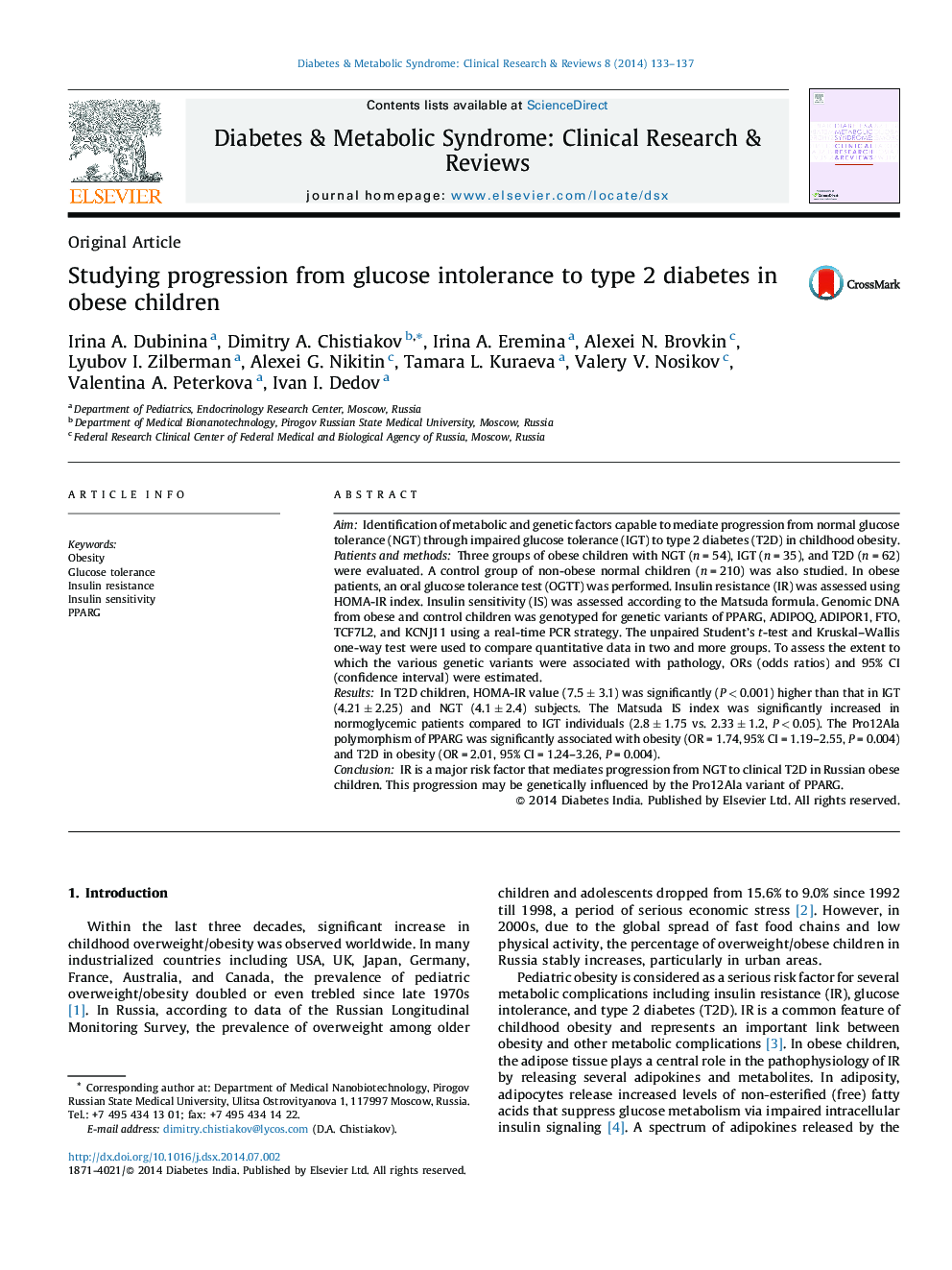| Article ID | Journal | Published Year | Pages | File Type |
|---|---|---|---|---|
| 2910127 | Diabetes & Metabolic Syndrome: Clinical Research & Reviews | 2014 | 5 Pages |
AimIdentification of metabolic and genetic factors capable to mediate progression from normal glucose tolerance (NGT) through impaired glucose tolerance (IGT) to type 2 diabetes (T2D) in childhood obesity.Patients and methodsThree groups of obese children with NGT (n = 54), IGT (n = 35), and T2D (n = 62) were evaluated. A control group of non-obese normal children (n = 210) was also studied. In obese patients, an oral glucose tolerance test (OGTT) was performed. Insulin resistance (IR) was assessed using HOMA-IR index. Insulin sensitivity (IS) was assessed according to the Matsuda formula. Genomic DNA from obese and control children was genotyped for genetic variants of PPARG, ADIPOQ, ADIPOR1, FTO, TCF7L2, and KCNJ11 using a real-time PCR strategy. The unpaired Student's t-test and Kruskal–Wallis one-way test were used to compare quantitative data in two and more groups. To assess the extent to which the various genetic variants were associated with pathology, ORs (odds ratios) and 95% CI (confidence interval) were estimated.ResultsIn T2D children, HOMA-IR value (7.5 ± 3.1) was significantly (P < 0.001) higher than that in IGT (4.21 ± 2.25) and NGT (4.1 ± 2.4) subjects. The Matsuda IS index was significantly increased in normoglycemic patients compared to IGT individuals (2.8 ± 1.75 vs. 2.33 ± 1.2, P < 0.05). The Pro12Ala polymorphism of PPARG was significantly associated with obesity (OR = 1.74, 95% CI = 1.19–2.55, P = 0.004) and T2D in obesity (OR = 2.01, 95% CI = 1.24–3.26, P = 0.004).ConclusionIR is a major risk factor that mediates progression from NGT to clinical T2D in Russian obese children. This progression may be genetically influenced by the Pro12Ala variant of PPARG.
